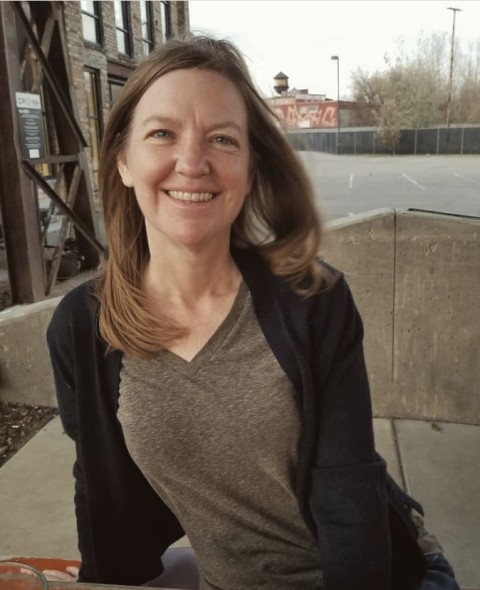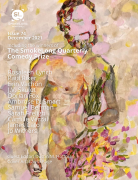I, for one, will never think of Humpty Dumpty again without imagining him stitched together and oozing at the seams! Your story is, in some ways, an indirect revision of Mother Goose nursery rhymes. And, yet, it reads as a hilarious critique of the editorial impulse to revise. How do you strike this balance and which of these themes—the converse instincts to revise and to preserve—most speaks to you?
It’s hard to say. I’m one of those weird people who actually enjoys the revision process. Writing stresses me out, but once I have something to work with, it’s a fun puzzle for me, trying to rearrange and rephrase and cut, getting my writing as polished as I can. And yet, like most writers, when I get conflicting feedback or feedback I don’t agree with, it’s difficult to change content I love. I want to preserve favorite lines and characters. I want to see how far I can push. But sometimes, you just need to surrender and make the change in order to provide clarity for the reader, no matter how clear, funny, or entertaining you think the story is without making the change.
Where did this story start? With an image like Mary with the piranha or the dame holding the empty bag? Or with an out-there suggestion from an editor? With a line? With a question?
I started this story several years ago, filed it, and forgot about it, so I can’t recall what inspired it. Then this spring, I needed something to submit to my fantastic writing group for workshopping, and I found this in my files and started fiddling with it. When I pulled it out, it wasn’t epistolary. It was just a list of what ifs — what if Mary had a piranha instead of a lamb?; what if Jill didn’t come tumbling after and took charge of her own life? I thought changing it from a list of what ifs to a letter from an editor was a fun vehicle for telling the story, a way for Whit to unknowingly make a mess by trying to edit out of existence stories in the form Mother Goose had intended them and as they were meant to be told for their place and time.
From your perspective, what is the purpose/importance/role of nursery rhymes and children’s stories—if there is such a thing as stories just for children, if we ever stop being children at all?
I suppose some would say stories are to teach and inform. But for me, the best stories made my imagination flourish. Isn’t that what we want children to embrace — the absurdities and humor and beauty of life? My favorite books likely had some sort of lesson or moral, but to this day, that’s not what I remember. I remember Grover freaking out about the monster at the end of the book. I remember James traveling in a giant peach with a handful of friendly, clever insects. I remember a fabulous book no one else has probably ever read called Never Tease a Weasel that had the best pacing and rhyme to make a four-year-old me get all giggly.
What was your process for selecting which Mother Goose nursery rhymes to comment on?
I revisited those that are still in my head from childhood and then did a Google search for others to remind me of what I may have forgotten. Because we accepted these rhymes as fun and charming when we were children, I tried to read them from the viewpoint of someone who had never read them, who only has that adult perspective for deciphering the text and sees it as troublesome. The editor’s desire to make them more modern, PC, and practical was interesting to me. I also wanted to combine something innocent, like a nursery rhyme, with the misguided confidence of this particular editor and his colleagues. And how there is this interesting dichotomy where Whit is correct in some respects—for example, the stories aren’t flattering to women—and yet, in the end, the person with no voice in this piece, Mother Goose, has the last laugh because she takes none of his advice and the nursery rhymes go on to be timeless.
In honor of the coming New Year, is there anything you are excited about in 2022? Any projects you are working on? Any events you are looking forward to?
I love the start of every new year. It’s a clean slate. A time to begin anew and figure out a better direction and more fulfilling purpose. I’m excited to keep writing and see where it leads. I always have ambitions to gather my little stories into a book and see if some publisher is interested in them. In non-writing news, my fiancé and I hope to get married in 2022—we’ve been putting it off because of the pandemic and aren’t sure how we will celebrate, but 2022 looks like the year it will happen. And although 2022 will be the Year of the Tiger, I’d like to get a dog. Every year I long for a dog.



 The SmokeLong Grand Micro Contest (The Mikey) is now an annual competition celebrating and compensating the best micro fiction and nonfiction online.
The SmokeLong Grand Micro Contest (The Mikey) is now an annual competition celebrating and compensating the best micro fiction and nonfiction online.